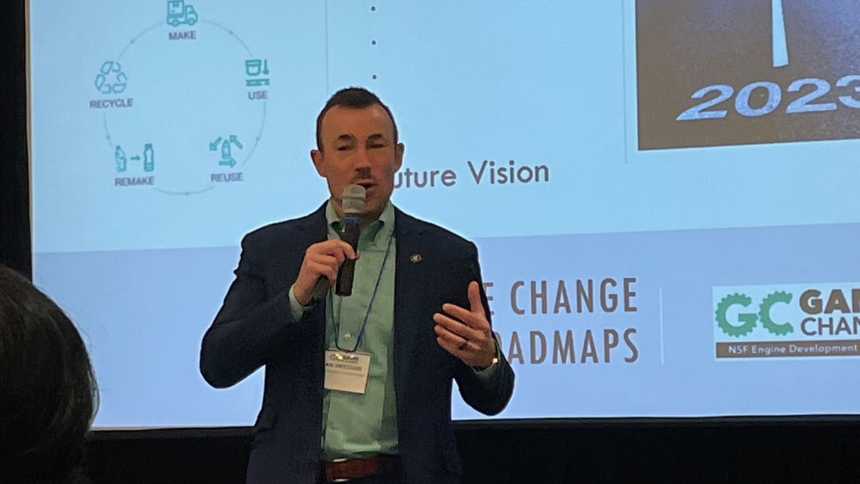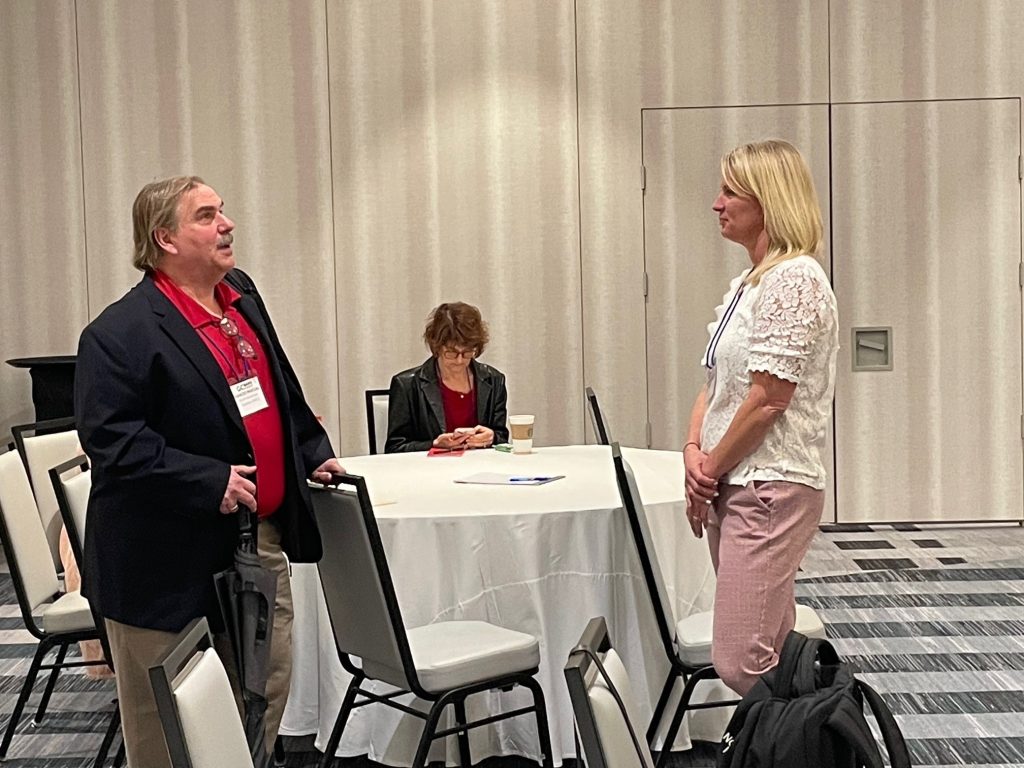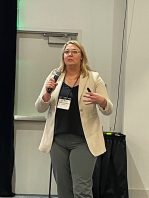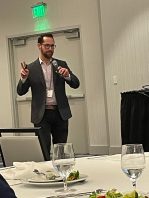
GAME Change focused on branding two states as a hub for circular economy manufacturing
More than 100 people gathered on Wednesday for a workshop. Most will return Thursday for the GAME Change Summit.
If the circular economy is your passion, you should have attended Wednesday’s first day of a two-day planning session for GAME Change, known officially as the Generate Advanced Manufacturing Excellence for Change, that has a goal of establishing the region as a hub for circular economy manufacturing.
More than 100 people attended the first day of the event at the Marriott in downtown Knoxville where plans are being formalized to prepare for a submission when the National Science Foundation (NSF) opens what is expected to be another round of solicitations for its Type-2 “NSF Engines” program. A University of Kentucky (UK)-led team successfully secured a Type-1 “NSF Engines Development Award” that provided $1 million for the sort of planning that continues on Thursday.
The geographic focus is two states – Kentucky and Tennessee, specifically focused on a region defined as between the I-75 and I-65 corridors – and UK has pulled together a number of core partners from both the Bluegrass and Volunteer States. Among those from Tennessee are Launch Tennessee, Oak Ridge National Laboratory, Tennessee Board of Regents, Tennessee State University, University of Tennessee campuses in Chattanooga and Knoxville, and Vanderbilt University.
As described by Ian McClure, Principal Investigator on the project, the goal for what is being called the Southeastern Commerce Corridor is to establish it as the next generation manufacturing and supply chain hub for the circular economy. For starters, McClure said the focus would be on two priority sectors: transportation, specifically areas such as aerospace, automotive, and materials; and infrastructure.
The core leadership team is intent on recruiting additional partners, developing the right business model for the R&D work, ensuring that promising technologies can be scaled-up, preparing the future workforce, and ensuring access to capital.
The meetings that continue with Thursday’s GAME Change Summit follow an earlier session last August at Dale Hollow Lake where the group settled on priorities like developing energy efficient manufacturing and recycling technologies, ensuring that start-ups are fully engaged, developing digital platforms, coordinating resources, and focusing on workforce development.
During Wednesday’s workshop, participants were divided into groups for two breakout sessions. The morning topic was technology roadmaps and workforce communities of practice, while the afternoon was devoted to defining the model and design of GAME Change Technology Scale Centers, a key component of the hub concept. Explaining that scaling up technologies from Technology Readiness Level 3 to 9 is not usually best done in university labs, McClure said that two Scale Centers were being planned in each state.
In both sessions, the attendees were further divided into groups that focused on digital integration technologies; the technology roadmap for the full product lifecycle; some aspect of workforce – jobs-task needs and talent pipeline in the morning and scale-testing projects and work-for-hire services in the afternoon; and what I would describe as economic impact – making manufacturing an inspiring/engaging story in the morning and start-ups and venture studios in the afternoon.

Ashleigh Walters, a recent addition to the Knoxville community after she and her husband sold a family-owned manufacturing facility in Erie, PA, facilitated the morning breakout session on telling a compelling manufacturing story.
During lunch, five start-ups – two from Tennessee, two from Kentucky, and one with a footprint in both states – described how they are playing a key role in the circular economy.


The two from Tennessee were SkyNano LLC, represented by Anna Douglas (below in right photo), and Vitriform3D Inc., represented by Alex Stiles (below left in photo). Both participated in the “Innovation Crossroads” program operated by Oak Ridge National Laboratory. Douglas was in the inaugural cohort, while Stiles participated in the 2022 cohort.
Both are building companies focused on the circular economy. In the case of SkyNano, the company is focused on a long-term solution to store CO2 by permanently putting it into carbon nanotubes that can be used to produce materials for reuse in the devices that people regularly use. Vitriform3D is using recycled and crushed glass for building materials that account for 11 percent of all global emissions.
The other companies were:
- ElectraMet, a 2014 spin-out from UK;
- Recyera, another Lexington start-up; and
- ZrO Waste Group, which is headquartered in Franklin, TN but has its R&D operations in Kentucky.
Like what you've read?
Forward to a friend!

